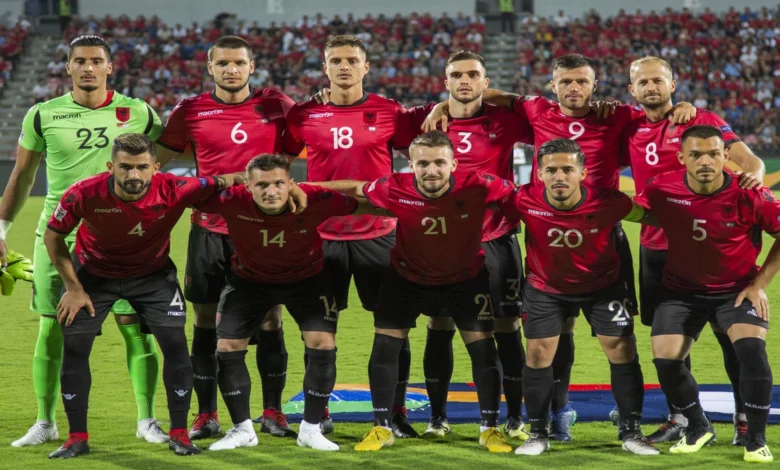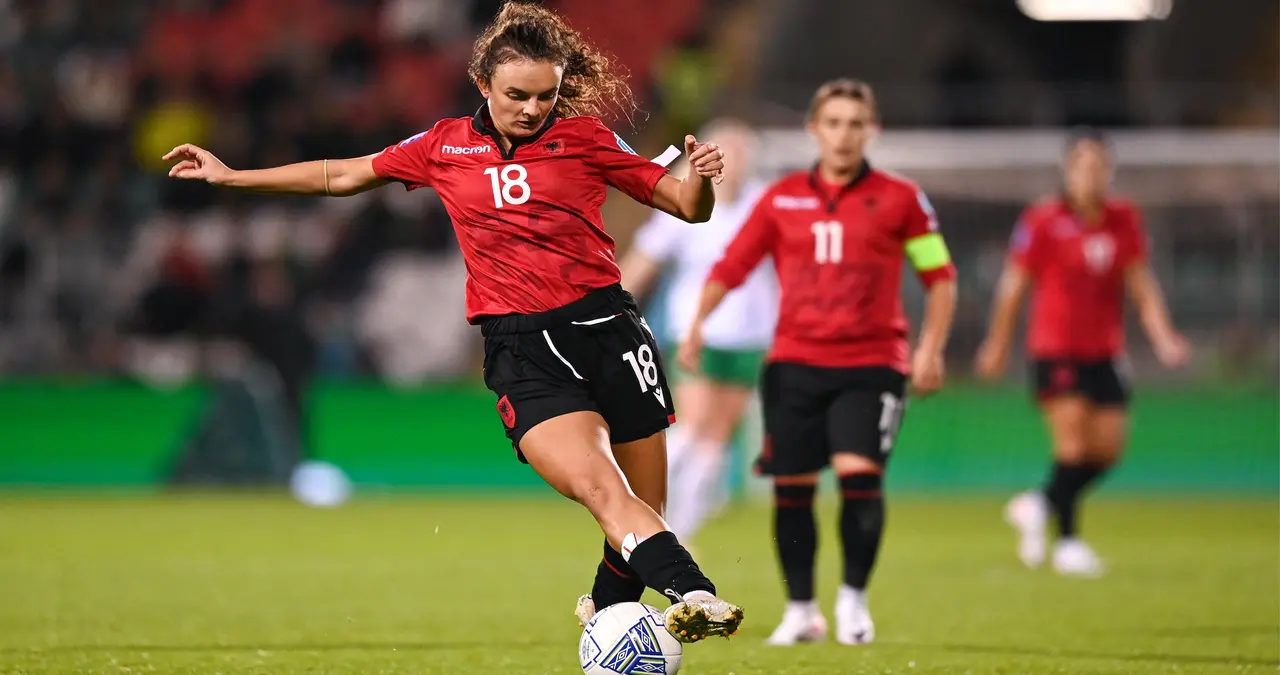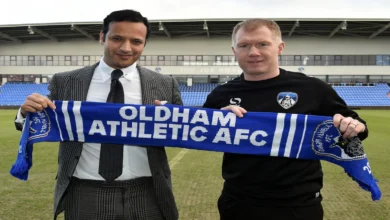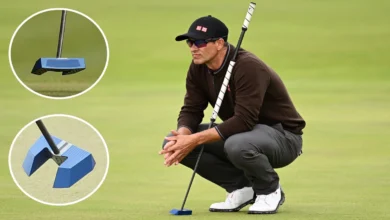Albania National Football Team: Pride, Passion, and Progress

Albania National Football Team: The Albania national football team is much more than a squad of players it’s a symbol of unity, resilience, and national pride. Representing a small but passionate Balkan nation, this team has risen from relative obscurity to compete with some of the best in Europe. From the streets of Tirana to the packed stadiums of international competitions, the Albania national football team continues to inspire fans with its gritty performances and unwavering spirit.
With every match, whether it’s a friendly or a qualifier, the Albania national football team embodies a blend of tradition, hard work, and modern tactical evolution. The squad has made impressive strides in recent years, pushing the boundaries of what’s expected from a smaller European footballing nation. It’s more than just football it’s a movement, a heartbeat that unites a country both at home and abroad.
A Brief History of the Albania National Football Team
The roots of the Albania national football team can be traced back to the early days of organized football in the Balkans. Though Albania didn’t immediately make a mark in international competitions, the passion for football was always evident in local communities.
After joining FIFA and UEFA in the mid-20th century, Albania began competing in official competitions. The early years were tough, marked by few wins and numerous challenges both political and logistical. But even then, the national team played with immense pride. They were underdogs, yes, but always gave their all on the pitch.
The turning point came in the past couple of decades when infrastructure investments and a focus on youth development began to pay dividends. The Albania national football team gradually began to emerge as a competitive side capable of challenging stronger teams in Europe.
The Memorable Euro Journey and Global Recognition
One of the most significant moments in Albanian football history came during the UEFA Euro tournament. The qualification and subsequent performance of the Albania national football team on that stage marked a historic chapter. It wasn’t just about results—it was about representing a nation that had long been overlooked in footballing circles.
Albania’s participation caught the attention of the global football community. The fans, with their unmatched energy and devotion, turned every match into a festival of red and black. Players showcased not only tactical discipline but also raw passion, often outshining teams with more prestigious histories.
That campaign changed everything. The perception of the Albania national football team shifted dramatically. They were no longer just a small team trying to make it they were a legitimate European competitor with real ambitions and a growing pool of talent.
Coaching and Management: The Brains Behind the Operation
Behind every successful team lies a strong management structure. For the Albania national football team, this has meant bringing in experienced coaches who understand both the technical and emotional elements of the game.
Albania has worked with a mix of local and international managers, each bringing their flair and philosophy. The goal has always been consistent—to create a team that plays with structure but also adapts to the unpredictable nature of modern football.
The management team has also focused on scouting dual-national players with Albanian heritage. This has significantly expanded the talent pool, allowing the national team to bring in players trained in top European academies. The result is a blend of domestic grit and international polish—a combination that’s proving increasingly effective on the pitch.
The Players: Heart, Skill, and National Pride
The soul of the Albania national football team lies in its players. From veterans who’ve been through the trenches to young stars rising through the ranks, each squad member brings something unique to the table.
The defense is usually rugged and reliable, with a backbone built on discipline and cohesion. Midfielders often serve as the engine room, combining defensive duties with creative flair. Up front, Albania has developed a reputation for producing fearless attackers who are willing to take on defenders and create goal-scoring opportunities out of nothing.
One of the more fascinating elements of the team is the camaraderie. Whether they grew up in Tirana or were raised in Switzerland, players gel as a cohesive unit when wearing the red and black. That unity translates into a determined and often defiant brand of football that earns respect, even in defeat.
Stadiums, Fans, and the Matchday Experience
Watching the Albania national football team play at home is an unforgettable experience. The Air Albania Stadium in Tirana serves as the main battleground, where fans pack the stands and create an atmosphere that’s both electric and intimidating for visiting teams.
The Albanian fan base is among the most passionate in Europe. They bring drums, flags, flares, and an energy that never dies, no matter the scoreline. It’s not just about supporting a team it’s about honoring a nation. The connection between the players and supporters is real and deeply emotional.
Away games are no different. Whether the team plays in Italy, Germany, or England, the diaspora shows up in full force, proudly waving the Albanian flag and turning opposition stadiums into mini Tiranas.

Youth Development and the Future of Albanian Football
The future of the Albania national football team looks bright, thanks in large part to an increased emphasis on youth development. Academies across the country are now better equipped, with coaching focused on technical skills, tactical awareness, and physical development.
Furthermore, Albania’s football federation has been proactive in identifying young talents abroad. Many second-generation Albanians living in places like Switzerland, Germany, and the UK have been called up to youth and senior national squads. This has broadened the base and added depth to the team.
The results are already visible. Younger players are breaking into the senior squad with increasing frequency and confidence. The team now has a healthy mix of youth and experience, setting it up well for future qualifying campaigns and tournaments.
Tactics and Style of Play
The Albania national football team is known for its tactical flexibility. Depending on the opponent, Albania can either sit deep and absorb pressure or press high up the pitch. This adaptability has become one of its strongest assets.
Typically, the team operates with a solid defensive shape, often favoring formations like 4-2-3-1 or 3-5-2. The focus is on maintaining compactness, quick transitions, and taking advantage of set-pieces.
What’s impressive is how the team punches above its weight tactically. Opponents often underestimate Albania’s ability to disrupt games and capitalize on moments of weakness. Under the right conditions, Albania can outplay more technically gifted teams with sheer determination and smart game plans.
Media Coverage and Public Perception
The growth in media coverage has amplified the reach and reputation of the Albania national football team. Local outlets provide wall-to-wall coverage, while international networks have started to pay closer attention, especially during major qualifiers.
Social media plays a huge role in connecting fans worldwide. Players often engage directly with supporters, creating a more personal and interactive fan culture. Documentaries, match-day vlogs, and behind-the-scenes content have made the team more relatable and humanized, further endearing them to fans.
Public perception of the team has never been higher. What was once viewed as a team that participated now looks like a team that competes? That shift in mindset reflects both results and attitude.
Challenges and Opportunities on the Road Ahead
Like any team, the Albania national football team faces its share of challenges. Competing with footballing giants in qualifiers is no easy feat. There are budgetary limitations, infrastructural gaps, and the occasional political interference that affects sports governance.
Yet, every challenge also presents an opportunity. The growing pool of international players, the rising fanbase, and better organizational structures offer the potential for a sustained rise. If Albania can continue building on its current trajectory, the future might hold more appearances in major tournaments—and possibly, a deep run that captures the world’s imagination.
Quick Bio Table: Albania National Football Team
| Team Name | Albania National Football Team |
| Nickname | Kuq e Zinjtë (The Red and Blacks) |
| Governing Body | Albanian Football Association (FSHF) |
| Head Coach | Sylvinho |
| Captain | Berat Djimsiti |
| Home Stadium | Air Albania Stadium, Tirana |
| FIFA Code | ALB |
| Most Caps | Lorik Cana |
| Biggest Achievement | Euro 2016 Qualification |
| Top Scorer | Erjon Bogdani |
| FIFA Ranking | (Approx.) Around mid-tier |
| First International | 1946 vs. Yugoslavia |
Frequently Asked Questions (FAQs)
What is the nickname of the Albania national football team?
The team is affectionately known as “Kuq e Zinjtë,” which means “The Red and Blacks.”
When did Albania first qualify for a major tournament?
Albania made its historic debut in a major tournament at Euro 2016.
Who is the current head coach of the Albania national football team?
As of now, the team is coached by Sylvinho, a Brazilian former professional footballer.
Where does Albania play its home games?
Most home matches are played at the Air Albania Stadium in Tirana, which offers a modern and passionate setting.
What style of football does Albania play?
Albania is known for a balanced style—strong defense, tactical discipline, and quick counterattacks.
Are there many foreign-born players in the Albania squad?
Yes, several players are of Albanian descent but were born and raised in countries like Switzerland, Germany, and Italy.
Is Albania a rising force in European football?
Absolutely. With strong youth development, experienced coaching, and a growing fan base, Albania continues to climb the ranks.







